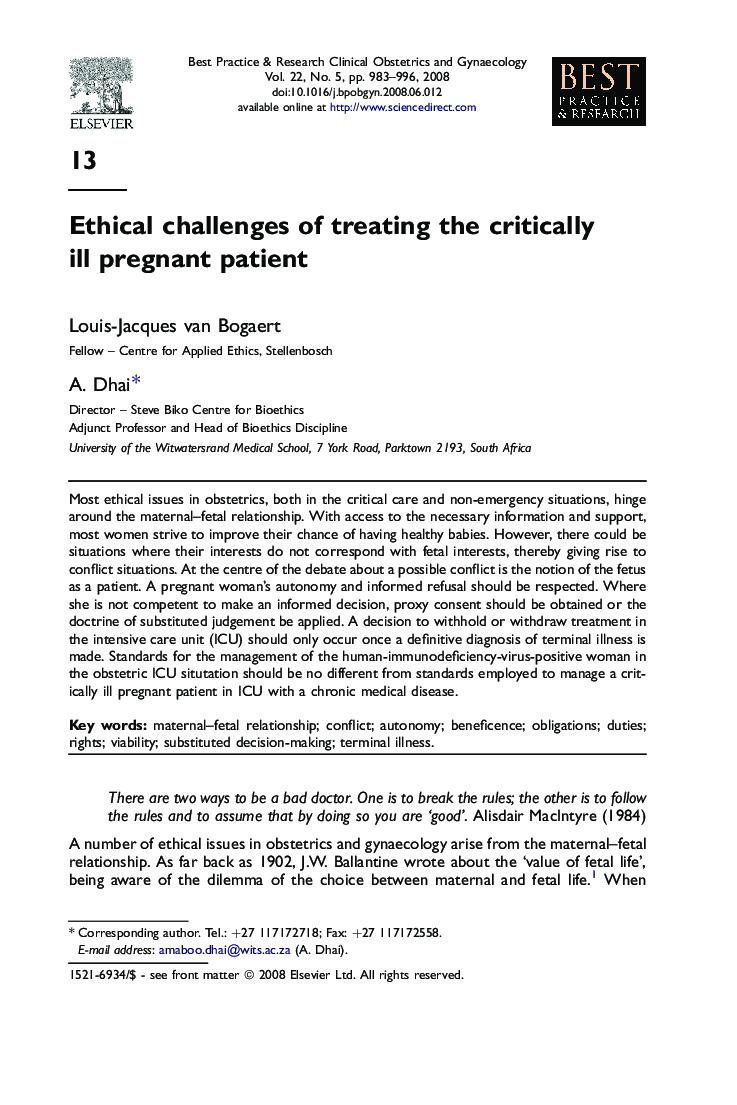| Article ID | Journal | Published Year | Pages | File Type |
|---|---|---|---|---|
| 3907472 | Best Practice & Research Clinical Obstetrics & Gynaecology | 2008 | 14 Pages |
Most ethical issues in obstetrics, both in the critical care and non-emergency situations, hinge around the maternal–fetal relationship. With access to the necessary information and support, most women strive to improve their chance of having healthy babies. However, there could be situations where their interests do not correspond with fetal interests, thereby giving rise to conflict situations. At the centre of the debate about a possible conflict is the notion of the fetus as a patient. A pregnant woman's autonomy and informed refusal should be respected. Where she is not competent to make an informed decision, proxy consent should be obtained or the doctrine of substituted judgement be applied. A decision to withhold or withdraw treatment in the intensive care unit (ICU) should only occur once a definitive diagnosis of terminal illness is made. Standards for the management of the human-immunodeficiency-virus-positive woman in the obstetric ICU situtation should be no different from standards employed to manage a critically ill pregnant patient in ICU with a chronic medical disease.
